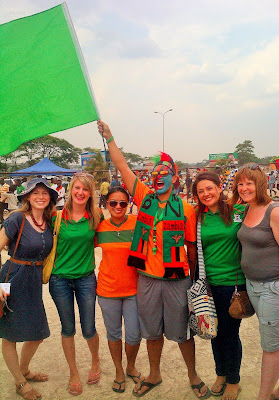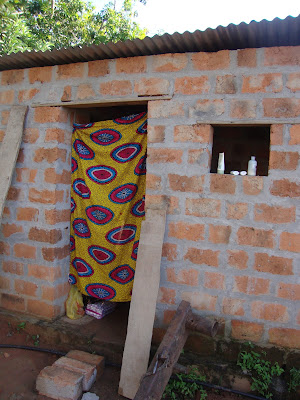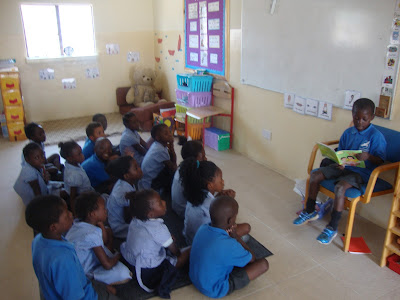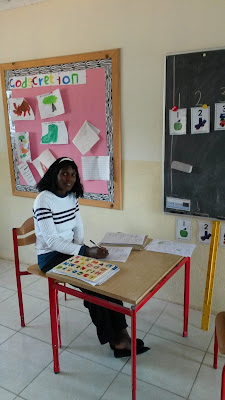Thursday
11th August marked an important day in Zambia as the country went to
the polls to elect a new President and government. Zambia is led by a President
and a government which are elected every five years. Elections are decided by a
‘first past the post’ system like in the UK, although for the first time this
year a candidate had to win more than 50% to avoid a run-off.
In
Zambia there have been six presidents since 1964 when the country gained
independence. In 2014, President Michael Sata sadly died during his presidency,
so extra elections were held in January 2015. This resulted in President Edgar
Lungu being elected to complete his predecessor’s term of office.
 |
| PF Candidate Lungu |
This
year, it was expected to be a tight race between President Lungu of the
Patriotic Front (PF) and Hakainde Hichilema (known as HH), representing the
United Party for National Development (UPND).
 |
| UPND Candidate HH |
Zambia
has been awash with colour in the build up to election day; posters, t-shirts
and banners, in green for PF and red for HH. The build-up has been hard to miss
and the noise unmistakable! Many vehicles have been driving around carrying
supporters and blasting loud music. It’s quite interesting to watch compared to
our more traditional, British way of politely arguing or badmouthing other
parties. Political paraphernalia in Zambia appears to be mostly billboard
posters and articles of clothing, including chitenges (traditional bright
fabric that women wear) rather than printed leaflets. The best way to find out
information about the election appears to be asking different people what they
know and assimilating what you find out.
 |
| One of our Arise guardians wearing a PF chitenge |
Adults
over 18 are eligible to vote in Zambia if they have an NRC (National
Registration Card). Polling stations are open all day and queues are long,
which means it can take hours to cast your vote. Each voter was given five
ballot papers this year – presidential, parliamentary, mayoral, local
government and a referendum. The nearest polling station to us was at the local
government primary school and many staff from the Bible College had the day off
to enable them to vote wherever they are registered.
A key issue in the election has been Zambia’s struggling economy. Interestingly
as the election grew closer, our 8 hour a day load shedding (power cuts) was
significantly reduced to only four hours, a few times a week. During election
week, there actually seemed to be power all day every day! I’m told that it is due to the President drumming up support from voters. I am slightly concerned
what will happen to the power when the election fever has died down.
One of
the interesting tactics that the current President has used as part of his
campaign, is to grant people free entry to some of Zambia’s football matches. I
attended a couple of these matches and I have never seen the 49,800 seater national
stadium so full. There were people running to get in, and armed officers at the
entrances letting in PF supporters. I couldn’t really imagine the Tories hosting
a free football match and not allowing Labour supporters to attend it!
 |
| Supporting Zambia Football Team |
It is
common that people in Zambia vote according to tribal lines. President Lungu is
from the Eastern Province which is part of the Bemba region. This mean that
PF’s main support comes from the Eastern Province, the capital Lusaka, the
Copperbelt (including Ndola) and other Bemba speaking regions.
 |
| Winning parties in 2015 election |
The
Electoral Commission of Zambia (ECZ) gradually released the results from each constituency
between Friday 12th and Monday 15th August. Where we live
in Kaniki it was 600 in favour of PF and 400 for HH. Considering it is
predominantly a PF dominated area, the opposition gained a lot of support.
Overall, the vote turned out to be close, with Lungu securing 50.35% of the
vote and retaining his position as President of the country.
There
have been rumours of electoral malpractice, such as missing votes. UPND are
alleging fraud, saying that the ECZ colluded with PF to rig the result, so the
party has withdrawn from the ballot verification process.
Although
mainly peaceful, it has been a tense time in the country. There have been a few
reports of trouble even nearby. When driving in to town one evening recently,
we went past a couple of open vehicles full of supporters, beeping horns and
playing loud music. One of our neighbours told us that two people were killed
that evening among the commotion.
Please pray for continuing peace in Zambia.
 |
| Raising the Zambian flag at school |









































